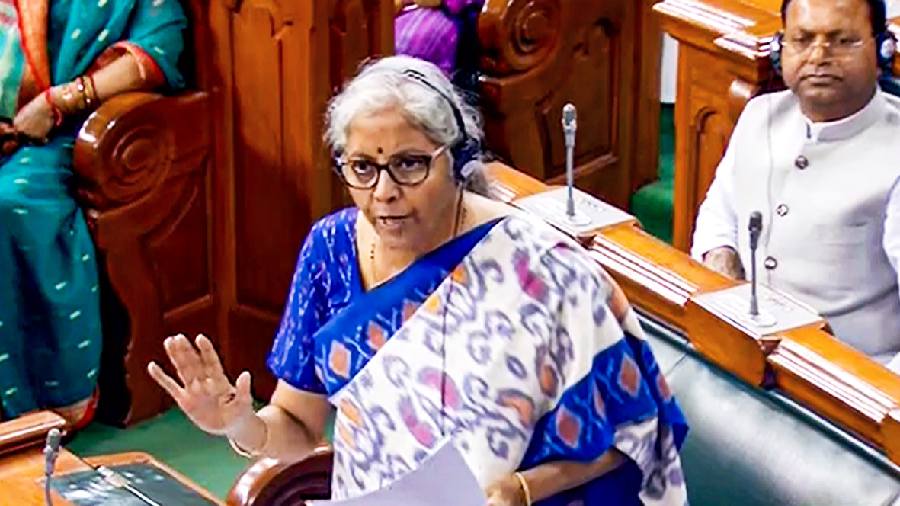There’s some bad news for people who hold debt mutual funds. Finance Minister Nirmala Sitharaman has abolished the longterm capital gains tax benefit that investors in debt mutual funds currently enjoy.
As of April 1, under the newly announced revised taxation rules, earnings from debt mutual funds will be taxed as short-term capital gains and not as long-term capital gains. Also gone are the benefits of indexation to cover the impact of inflation.
Basically this means that long-term investments you make in debt mutual funds will be taxed at income tax rates applicable to your income slab.
The changes are part of the Finance Bill 2023 which was passed by the Lok Sabha on Friday.
Until March 31, earnings from debt mutual funds held for over three years are assessed as long-term capital gains. They’re taxed at 20 per cent along with indexation or 10 per cent without indexation. Mutual funds held for less than three years are treated as short-term capital gains and taxed according to the individual’s tax slab.
The new rules will relate to investments made after April 1. Debt mutual funds are ones that do not hold more than 35 per cent of total investments are in equities.
The tax changes will put financial products like bank fixed deposits, debt mutual funds, and insurance savings products on a new level playing field.
The rules stripping the tax advantages from debt mutual funds will make bank fixed deposits (FDs) more attractive. Investment experts say investors who formerly bought large quantities of debt mutual funds may now switch to bank FDs – which would shore up banks’ balance sheets – or to equities.
“They’re basically removing debt mutual funds from long-term benefits. In any case, debt is a risk-free return. The rate of return is less. But the rate of return is certain,” says Abhishek Rastogi, founder, Rastogi Chambers
The government has just introduced a new tax regime under which the minimum tax level has been hiked to Rs 7 lakh. The old tax regime is still in force but the government is making a huge effort to convince taxpayers to shift to the new regime.
Investors in debt mutual funds are usually conservative – and often older – market players who want instruments that are less risky even though they offer lower returns.
Bank fixed deposits are now offering far better returns than in recent years with the central bank having hiked its trend-setting interest rate by 250 basis points in a bid to contain inflation.
Fixed-rate deposit savers can get anywhere from 7.75 per cent to 8.25. A couple of banks are offering even 8.5 per cent. And there’s likely more upside in store for bank fixed-deposit rates.
Analysts predict that interest rates will rise in the near future and therefore the rate on fixed rate deposits would climb furter. Investment analysts are debating whether it would be worth waiting for banks to offer higher returns on their FDs.
Equity mutual funds and equities are taxed at 10 per cent without indexation benefits.
Some analysts see the tax move as a big blow to India’s nascent debt market. Hitherto, debt mutual funds have been a useful tool in boosting small investor participation in fundraising, reducing the debt capital market’s reliance on corporate investment. But if they switch as expected to bank fixed rate deposits that will no longer be the case.
Now, also, investors will be seeking an increase in yield on corporate debt to get the same after-tax returns.
Radhika Gupta, chief executive of Edelweiss Asset Management Ltd, urged the government to review the proposed change in the Finance Bill. “Financialisation is just happening in India and a vibrant corporate bond market needs a strong debt mutual fund ecosystem,” Gupta said.
Capital gains on international funds and gold funds will also be now taxed at an individual’s tax slab rate no matter how long they have been held.












